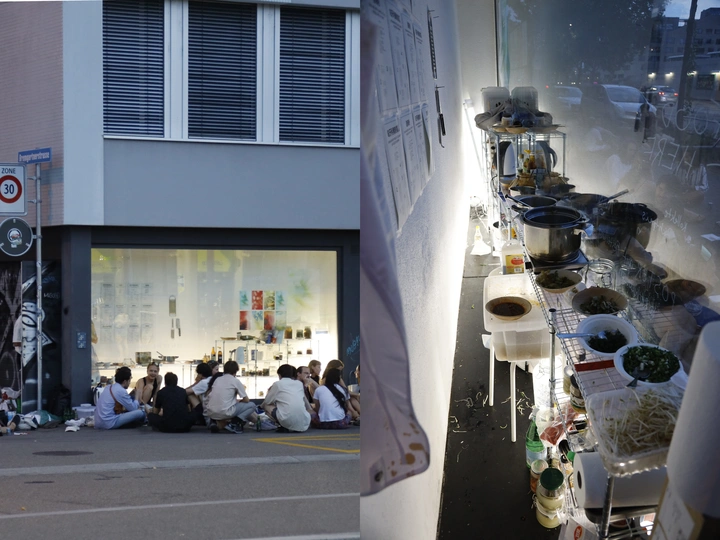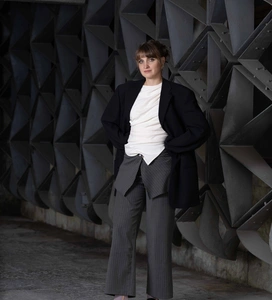Culinary explorations building spaces of encounter

Blanka Major is a Zurich-based architect with Hungarian roots, working independently and collaboratively across scales and formats. Her practice spans architecture, cooking, editing, curating, writing, teaching, and research. She holds degrees in Art History and Architecture, graduating from ETH Zurich in 2022 with the project food forms. She is part of ZAS* (Zürcher Arbeitsgruppe für Städtebau), working on alternative narrations of the existing and contributing civic engagement. At ETH Zurich, she teaches and researches at the Chair of Alexandre Theriot, where she co-edited «Peter Thomann – Hors Piste» (gta Verlag, 2025).
Her practice is grounded in curiosity about the everyday: how we live together and how built environments shape social roles. She investigates the infrastructures and systems—housing, food, domestic routines—that structure daily life and influence rhythms of coexistence. Alongside architecture, she explores food as a spatial and social medium. Cooking and eating become tools of inquiry and formats for gathering, dissolving boundaries and creating temporary collectivities.
Through performative dinners and installations, Blanka uses the kitchen as a space of experimentation where sensorial and social experiences intersect. These works unfold both within and outside institutional contexts, addressing how we live together in material terms.
Her work with Kitchuan has been shown at Kunsthalle Bern («every instant is at once»), Kunsthaus Zürich’s Clubhaus (invited by Aris Guzman), and Foodculture Days in Vevey. She is currently collaborating with the Art x Science Office of the University of Zurich on «devouring» (Nov 2024) and «argilla» (Aug 2025).
Blanka’s work links body, architecture, and territory to develop spatial formats rooted in temporality, interdependence, and lived experience. Her practice evolves through research, fieldwork, experimentation and speculative design—transforming domestic acts into architectural thinking.
As a child, I spent summers in the Hungarian countryside, observing my grandmother peel potatoes at the kitchen table. This repetitive, intentional gesture is a core image in my work: a convergence of body, landscape, (female) labor, and performed domesticity. It informs a spatial method starting from the body—one that cooks, eats, carries, cleans, and negotiates. I examine how these embodied actions shape space, social structures, and systems of provision.
Through the body, the kitchen evolves from a technical space of efficiency to one of social and political negotiation. It becomes a hinge between household and supply chain, policy and gesture, body and land. Through performative formats and field research, I study how domestic routines connect to broader systems—urban infrastructure, land use, and ecological rhythms.
I engage with food as both material and method, grounded in specific sites and situated knowledge. Cooking and eating become ways to listen, test space, trace relations, and host encounters. Spanning scales from intimate installations (Kitchuan, Essen & Zuhören) where shared meals create narrative, to the investigation of Zurich’s food infrastructures (food forms), and transforming Zurich’s former city kitchen into a public space for production and debate. In Devouring and Argilla, I shift from body to landscape, exploring how we consume territory—and how it shapes us in return.
My aim is to develop a spatial practice centered on what sustains us—food, care, and embodied routines—and to use these as tools for shaping space and collective life. In times of ecological and social crisis, how can cooking and eating become practices that help us transform our environments? What new spatial forms emerge when architecture absorbs the temporalities of the body and rituals of the everyday? Through LINA, I aim to deepen my practice and evolve collective formats – by making, sharing, experimenting and experiencing together to create spaces for encounters.
